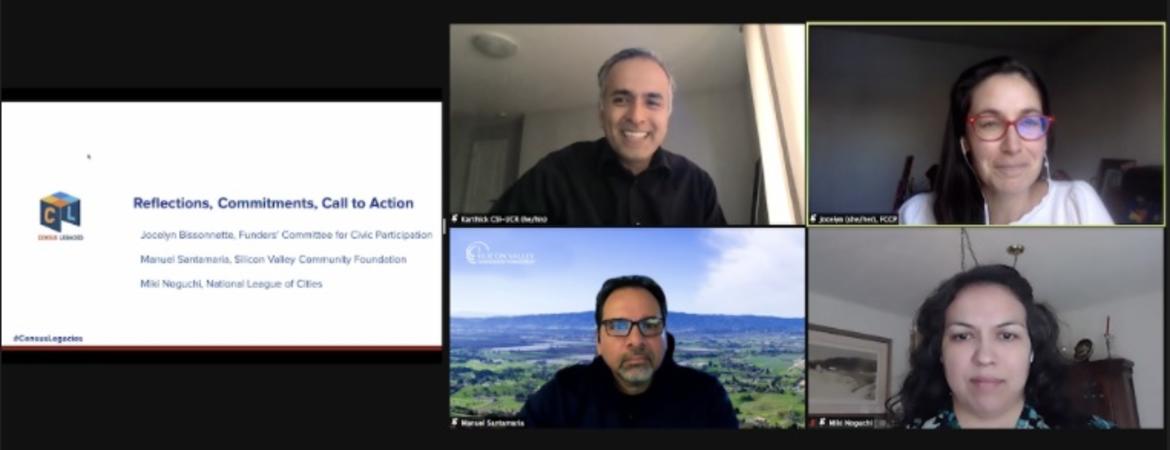
This week, more than 200 leaders from across the United States helped launch Census Legacies, a new community-building effort by the Center for Social Innovation at UC Riverside with partners in philanthropy, government, and community.
The initiative aims to build more inclusive and equitable regions, using the same messengers and coalitions that helped ensure strong community participation in the 2020 Census.
The Dec. 15 Zoom launch event previewed a toolkit being developed by Census Legacies. The toolkit identifies four broad areas of post-Census work based on stakeholder conversations. One is in vaccine outreach and planning, deploying “trusted messengers” in community outreach on Census to combat misinformation and engender trust in communities that have been historically undercounted and underserved.
Speakers at the national launch included representatives from the U.S. Census Bureau; philanthropy-serving organizations such as the Funders’ Committee for Civic Participation, United Philanthropy Forum, Minnesota Council of Foundations, Philanthropy Northwest; and regional census coalitions from the counties of Imperial, Orange, and San Diego.
“Outreach on Census 2020 saw the most inclusive coalitions ever built,” said Karthick Ramakrishnan, professor of public policy and director of UCR’s Center for Social Innovation. “Instead of dismantling these coalitions, we are seeing significant interest among funders, government, and community partners to continue ensuring that historically undercounted communities have an equal voice in shaping the future of our regions.”
Ramakrishnan said he witnessed this interest as director of the Inland Empire Census Complete Count Committee, as community and government partners built close relationships and worked together in ways that were unprecedented for the region.
Karla Lopez del Rio worked as the lead community partner specialist for the U.S. Census Bureau in Riverside County before joining the Center for Social Innovation as its associate director in September 2020.
“What I consistently found was that it was easier to build community partnerships to work on census outreach when the community was unified and organized,” Lopez del Rio said. “In places where community organizations had built strong relationships with each other and with partners in government agencies, like school districts and various county agencies, it became much easier to get communities to participate in the census.”
Ramakrishnan said replicating census outreach provides an opportunity to build inclusive tables that include historically undercounted communities, including communities of color, immigrants, seniors, people with disabilities, LGBT communities, and more.
Beyond vaccine planning, increasing civic engagement in underserved communities is at the heart of Census Legacies’ mission. The Census Legacies toolkit provides guidance on including voices of affected communities in conversations about budgets, essential services, housing, transportation, economic development, and education.
Census coalitions may also be used to develop a pipeline of community leaders who built important skills and experiences in demographic data, understanding local needs, and building policy expertise.
Finally, the effort is looking to get communities more actively engaged with Census Bureau products and activities in the coming decade, including the American Community Survey and various economic surveys. Partners in Census Legacies aim to preserve the documents and contact information to produce an even stronger effort for Census 2030.
“Many funders, government agencies, and community organizations saw the power of breaking silos and improving collaboration across sectors,” Ramakrishnan said. “Relationships and data coming from census constitute what we call ‘Community R&D,’ and we are excited to continue invigorating and strengthening community development in collaboration with various partners.”



